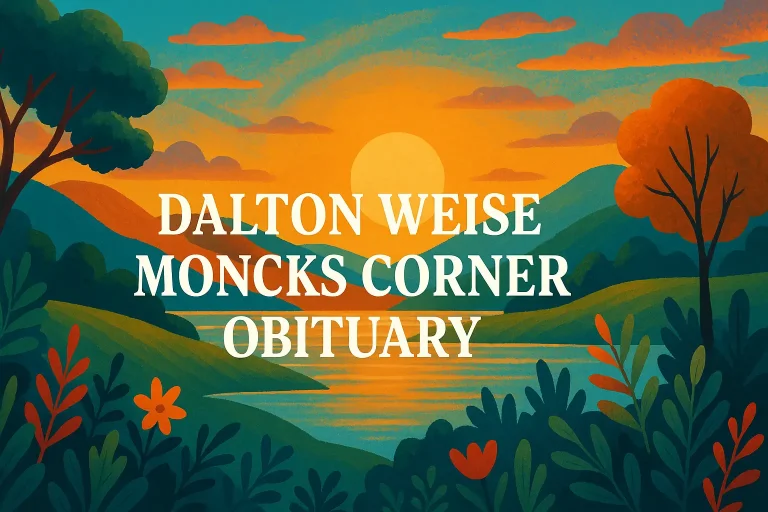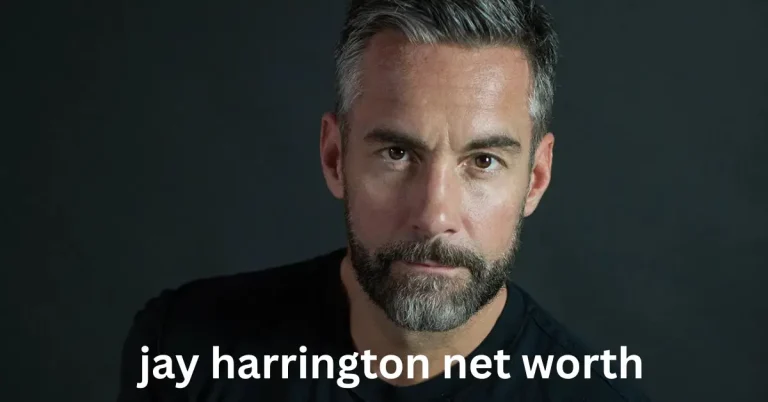
In the ever-evolving landscape of campus life and responsibility, few cases have stirred such intense discussion as the Elijah Katzenell Villanova incident. This story, deeply tied to Villanova University’s culture and legal challenges, sheds light on complex issues ranging from personal accountability to institutional change. As we explore the events, reactions, and future implications, our aim is to deliver trusted, balanced, and clear information, empowering readers with knowledge and insight.
Villanova University, widely celebrated for its academic excellence and vibrant student life, now faces renewed scrutiny over campus safety measures. The case involving Elijah Katzenell is more than a single event — it’s a mirror reflecting broader societal issues about young adult behavior, institutional duties, and pathways to healing and reform.
What Is Elijah Katzenell Villanova?
The term “Elijah Katzenell Villanova” refers to a highly publicized case involving Elijah Katzenell, a former Villanova University student. In 2022, Katzenell became the central figure in a deeply troubling incident involving sexual misconduct during Villanova’s “Sylly Week,” a traditional first-week celebration. The case has since resonated widely across educational and legal communities.
More than a criminal matter, this case highlights urgent questions surrounding college party culture, sexual misconduct on campus, university liability, and the resilience of victims. Understanding the key facts behind Elijah Katzenell’s story is crucial for grasping the wider implications for students, institutions, and policymakers.
Details of the Villanova Dorm Assault During Sylly Week
In September 2022, a festive atmosphere enveloped Villanova University as students celebrated Sylly Week. Amid the excitement, tragedy struck. Elijah Katzenell was involved in a dorm room incident at Sheehan Hall, where a female student, later identified in court as “C.A.,” was sexually assaulted. The Delaware County District Attorney’s Office detailed how the victim appeared unconscious during the assault.
Investigations revealed that Katzenell’s roommate also participated, and another student recorded part of the incident. Yet, shockingly, only Katzenell faced formal criminal charges. This event, now referred to as the Villanova dorm incident, sent ripples of concern across campus, urging swift action and accountability.
Also Read: https://fizzymag.co.uk/crypto30x-com-gigachad/
The Legal Proceedings: From Charges to Guilty Plea
Following thorough investigations by the Delaware County District Attorney’s Office, Elijah Katzenell was charged with felony sexual assault. Facing overwhelming evidence, including witness accounts and video footage, Katzenell accepted a plea deal rather than proceed to trial.
In September 2024, he formally entered a guilty plea. This crucial development emphasized the justice system’s role in upholding the rights of survivors and maintaining public trust. The plea also marked a significant moment in the wider dialogue about sexual misconduct cases within university settings.
Elijah Katzenell’s Sentencing: House Arrest and Lifetime Registration Under Megan’s Law
The sentencing phase brought its own wave of reactions. Elijah Katzenell was sentenced to seven years of probation, with the first year to be served under strict house arrest at his family’s home in Maryland. His punishment also required lifetime registration under Megan’s Law, categorizing him as a Tier III sex offender.
Many saw the sentencing as both a form of justice and a reminder of how actions during pivotal life stages can profoundly shape one’s future. The house arrest sentencing drew attention from national media, signaling a stern warning against campus-related offenses.
Understanding Tier III Sex Offender Status and Its Implications
Tier III is the most serious classification under Megan’s Law. Individuals listed under this tier must maintain lifelong registration, with frequent updates to their personal information. This designation will follow Elijah Katzenell for the rest of his life, restricting housing options, employment opportunities, and public movement.
For broader society, Tier III status serves as a strong deterrent against crimes involving vulnerable individuals. It also reflects the increasing seriousness with which courts treat sexual misconduct on campus, reinforcing the importance of early education and preventative measures.
The Fallout at Villanova University: Disciplinary Actions and Policy Changes
Following the incident, Villanova University acted decisively. Elijah Katzenell and his roommate were no longer enrolled, signaling immediate institutional consequences. Though the third student’s status was undisclosed, the university emphasized its commitment to ensuring campus safety.
Beyond individual disciplinary actions, Villanova reevaluated its safety policies and dormitory supervision protocols. These steps aimed not only to prevent future incidents but also to restore faith among students, parents, and faculty — a critical move in an era of heightened scrutiny over college party culture crimes.
The Civil Lawsuit: Victim’s Pursuit of Justice Beyond the Criminal Court
Parallel to criminal proceedings, the victim filed a civil lawsuit in federal court. The lawsuit targets Elijah Katzenell, his roommate, the third student, Villanova University itself, and related business entities responsible for student housing.
The civil lawsuit after assault alleges negligence on the university’s part for failing to properly monitor activities and protect students during Sylly Week. This action reflects a growing trend where victims seek broader accountability beyond the confines of criminal law.
Villanova University’s Response to Campus Safety and Student Conduct
Villanova’s leadership responded with urgency and a promise of reform. New initiatives were launched focusing on alcohol education, consent training, and mental health support, particularly during high-risk periods like Sylly Week.
The university also enhanced its Title IX reporting system and launched independent audits of campus events. Villanova’s proactive efforts underline a vital lesson for other institutions — ignoring red flags can have devastating consequences for the entire community.
Broader Implications: Campus Sexual Assault and Institutional Responsibility
The Elijah Katzenell case resonates far beyond Villanova. It raises urgent conversations about how universities handle sexual misconduct allegations and what duty of care they owe their students.
Institutions nationwide now face greater pressure to examine their safety protocols, risk management strategies, and cultural messaging around alcohol and parties. The idea of university liability in sexual assault is no longer abstract; it’s an active area of legal, social, and political focus.
Public and Media Reaction to the Elijah Katzenell Villanova Case
Coverage by outlets like Philly Mag and Wider Blog ignited public outrage and empathy alike. Media reports highlighted not just the legal facts but also the emotional toll on the victim, the accused, and the broader Villanova community.
Public sentiment leaned heavily toward supporting the victim, emphasizing the need for reforms that genuinely prioritize student well-being over institutional reputation. Transparency, accountability, and survivor support became rallying cries.
Analysis of Villanova’s Role and Potential Negligence
Could Villanova have prevented the incident? The civil lawsuit seeks to answer that question. Critics argue that better supervision, stricter dormitory policies, and more robust education about consent during Sylly Week might have averted tragedy.
This incident serves as a stark reminder: colleges must continually update their safety practices to adapt to changing student behaviors and risks, ensuring no gap is left for harm to occur.
How Sylly Week Culture Contributed to the Incident
Sylly Week, intended as a celebration of new beginnings, ironically became a catalyst for reckless behavior. Lax rules, excessive drinking, and limited supervision created a combustible environment that tragically erupted into violence.
Reforming the culture around Sylly Week — focusing more on meaningful, safe community-building events — could be key to preventing future harm. The incident has already prompted such conversations at Villanova and beyond.
Victim Support Systems and Legal Protections in College Sexual Assault Cases
Following the incident, Villanova increased investments in survivor support systems, including confidential counseling, legal assistance, and medical services. Title IX offices nationwide play a crucial role in ensuring survivors’ rights are protected and honored.
Victim advocates stress the importance of immediate access to resources, clear reporting channels, and non-retaliation protections. In any campus sexual assault case, trust in institutional processes can make or break a survivor’s path to healing.
Lessons Learned: How Universities Nationwide Are Reacting to Similar Incidents
The Katzenell case has become a learning moment for colleges across the country. Institutions are rethinking dormitory rules, event supervision, alcohol policies, and how to proactively shape safe campus cultures.
Mandatory consent workshops, stricter party registration policies, and anonymous reporting systems are now becoming standard best practices, aiming to transform crisis into catalyst for enduring change.
The Role of Witnesses and Bystander Accountability in Campus Crimes
One of the most painful elements of the case was the involvement of other students as passive participants. Bystander accountability is now an essential pillar of campus education — urging students not only to intervene safely but also to report wrongdoing.
Empowering students to act courageously when witnessing misconduct could prevent countless future tragedies, making universities truly safer for all.
Current Status of Elijah Katzenell and Future Legal Consequences
As of 2025, Elijah Katzenell remains under house arrest in Maryland, closely monitored under his probation terms. His Tier III sex offender status will follow him for life, creating profound restrictions on employment, travel, and housing.
Further legal challenges may arise, especially if the civil lawsuit proceeds to a full trial. Katzenell’s case remains a cautionary tale about the long-lasting consequences of split-second decisions made during youth.
Understanding the Civil vs Criminal Aspects of Campus Assault Cases
It’s crucial to understand the difference: criminal cases seek punishment by the state, while civil lawsuits seek compensation for damages suffered by victims. Both play essential roles in delivering justice, although they operate under different burdens of proof.
In this case, while Katzenell accepted a criminal penalty, the civil suit ensures that broader systemic failures are also brought into question — pushing for changes that benefit future generations.
Broader Impacts on Villanova’s Reputation and Admissions
Like many institutions facing crises, Villanova experienced a temporary hit to its public image. Admissions inquiries dropped slightly, and alumni expressed concern. However, the university’s fast and transparent handling of the situation helped rebuild trust.
Today, Villanova positions itself as a leader in campus safety reforms, using hard lessons to create a stronger, safer environment for all students.
FAQs
Q1: Who is Elijah Katzenell?
Elijah Katzenell is a former Villanova University student involved in a 2022 sexual assault case during Sylly Week.
Q2: What happened at Villanova University’s Sheehan Hall?
During Sylly Week, a female student was assaulted in Sheehan Hall, leading to Elijah Katzenell’s criminal charges and civil lawsuit.
Q3: What was Elijah Katzenell’s sentence?
He received seven years of probation, including one year of house arrest, and lifetime registration as a Tier III sex offender under Megan’s Law.
Q4: How is Villanova University responding?
Villanova implemented new safety measures, expanded support systems, and reformed event supervision policies to prevent future incidents.
Final Thoughts
The Elijah Katzenell Villanova case, while tragic, offers powerful lessons about accountability, reform, and resilience. It underscores the necessity of fostering cultures of respect, vigilance, and support across every university campus. By learning from the past and acting with courage, we can build safer, stronger communities where every student thrives.






